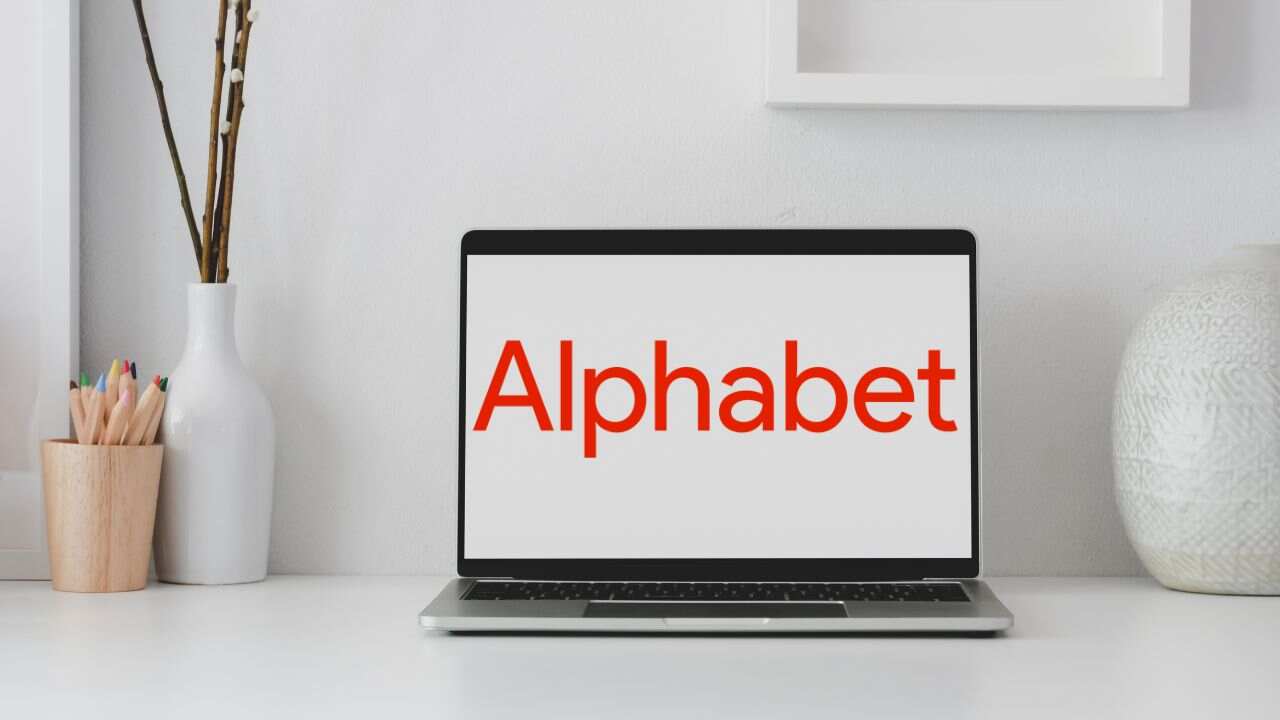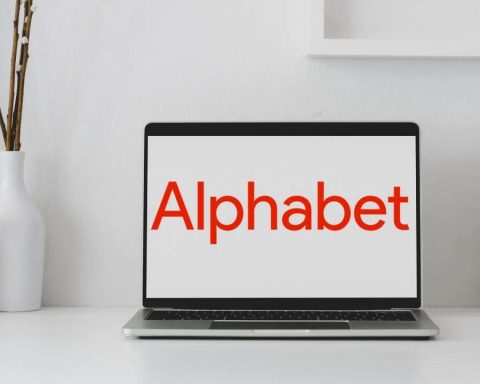Alphabet Inc., the parent company of Google, has reached a huge milestone by becoming the first company in history to have a market capitalization of more than $3 trillion. This historic event shows how powerful Alphabet is in the tech world and solidifies its place as one of the most valuable companies in the world. The fact that Alphabet’s stock is worth so much shows not only how good its technology is, but also how well it can adapt to changes in the fast-paced digital economy. This article looks at the reasons for Alphabet’s meteoric rise, what this milestone means, and what the future holds for the tech giant.
The Way to $3 Trillion
Alphabet’s rise to a $3 trillion market cap is the result of years of new ideas, smart purchases, and a constant focus on finding new ways to make money. Larry Page and Sergey Brin started Google in 1998 as a search engine company. It quickly became known as the internet itself. Alphabet was formed in 2015 through a restructuring that let the company separate its main internet businesses, like search, YouTube, and Android, from its more experimental ones, like Waymo, Verily, and DeepMind. This structure let Alphabet work on big projects while still making money from its main business.
The company’s stock price shot up to this all-time high in 2025 because of a mix of strong financial results, investor confidence, and advances in artificial intelligence (AI). Alphabet’s market cap milestone puts it in a small group of companies, along with Apple and Microsoft, that have also crossed the $3 trillion mark in the past few years. The achievement is even more impressive because of the economic uncertainty of the mid-2020s, which includes rising prices, geopolitical tensions, and more scrutiny of Big Tech by regulators.
The Things That Make Alphabet Successful
Several important things have helped Alphabet reach this financial peak:
Leading the Way in Search and Ads
Google Search, Alphabet’s main business, is still the main source of its income. Google has more than 90% of the world’s search engine market. It handles billions of queries every day, which creates a lot of data that powers its advertising empire. In 2024, Alphabet made almost 80% of its money from advertising, which includes Google Ads and YouTube. The company has stayed ahead of competitors like Meta and Amazon in the digital advertising space by improving its ad-targeting algorithms with the help of AI and machine learning.
YouTube: A Cultural and Financial Powerhouse
Google bought YouTube in 2006 for $1.65 billion. Since then, it has become a huge cultural force and a major source of income. YouTube has taken advantage of the global trend toward video content, with more than 2.5 billion active users every month. The ad-supported model, along with the growing popularity of YouTube Premium and YouTube TV, has made its income streams more diverse. The platform’s use of AI to suggest content has made users even more engaged, making it an important part of Alphabet’s portfolio.
The Quick Rise of Cloud Computing
Google Cloud used to be a distant third to Amazon Web Services (AWS) and Microsoft Azure, but now it is a major growth engine for Alphabet. Alphabet has put a lot of money into its cloud infrastructure in the last few years, focusing on AI-powered solutions and services for businesses. By 2025, Google Cloud had taken a big chunk of the cloud computing market thanks to the popularity of its data analytics, machine learning, and cybersecurity services. The division’s profitability in 2023 was a turning point that showed Alphabet could compete in an area where its competitors had been in charge for a long time.
AI Leadership and Innovation
Alphabet’s leadership in AI has changed the game. Google Research, the company’s research arm, and DeepMind, its AI-focused subsidiary, have made great progress in generative AI, computer vision, and natural language processing. Alphabet’s position in the AI race has gotten stronger thanks to products like Google Bard, which became a powerful conversational AI platform. The use of AI in all of its products, from search algorithms to Waymo’s self-driving cars, has made them more efficient and opened up new ways to make money.
Diversification and strategic acquisitions
Alphabet’s growth has been greatly helped by its strategy for buying other companies. Alphabet has grown its reach into wearables, smart home devices, and digital advertising through acquisitions like Fitbit, Nest, and DoubleClick, in addition to YouTube. Alphabet’s long-term vision for innovation is shown in its “Other Bets” division, which includes projects like Waymo and Verily. Even though these bets haven’t had a big impact on the bottom line yet, they put Alphabet in a good position to make money in new markets like self-driving cars and healthcare technology.
Market Changes and Investor Trust
Alphabet’s $3 trillion value is also due to the bigger market environment. Investors are feeling more positive about the tech sector again, thanks to progress in AI, cloud computing, and digital transformation in many fields. Alphabet’s stock has done well because its earnings have been steadily rising. The company has reported revenue increases of more than 10% in the last few quarters. Its ability to deal with big problems in the economy, like rising interest rates and problems with the supply chain, has made investors even more confident in it.
Alphabet’s focus on keeping costs under control has also made shareholders feel better. In 2023, the company cut costs by laying off workers and making operations more efficient because of economic problems. These efforts increased profit margins, especially in the cloud division, and showed that Alphabet can grow while still being careful with money.
Problems with rules and moral issues
Alphabet has had a lot of success, but it still has a lot of problems to deal with, especially when it comes to rules and regulations. Governments around the world are paying more attention to Big Tech. In the US, EU, and other places, Alphabet is at the center of antitrust investigations. Some people say that Alphabet’s control over search, advertising, and mobile operating systems hurts competition and new ideas. In 2024, the U.S. Department of Justice filed a historic antitrust case against Google, claiming that the company engaged in monopolistic behavior in its advertising and search businesses. There is still a chance that Alphabet’s empire could break up.
There are also problems with privacy. Critics, including regulators and consumers, have said that Google’s data-driven business model is bad. This has led to stricter data protection laws like the EU’s General Data Protection Regulation (GDPR) and California’s Consumer Privacy Act (CCPA). Alphabet has responded by putting money into technologies that protect privacy, like federated learning and differential privacy, to keep users’ trust and follow the rules.
The Bigger Picture
Alphabet’s $3 trillion milestone has big effects on both the tech industry and the world economy. It shows how technology companies are having more and more of an impact on culture, markets, and new ideas. Alphabet is one of the most valuable companies in the world. It has a lot of power to change policies, invest in technologies that change the world, and boost the economy.
The milestone also shows how important AI and cloud computing are as the next big things in technology. Alphabet’s success in these areas shows that the tech world is changing. Companies that are good at AI and data analytics will probably be the ones that lead the market. To keep up, competitors like Microsoft, Amazon, and new companies in the AI space will have to come up with new ideas quickly.
Alphabet’s success shows that the tech sector is strong and has a lot of room to grow in the future, which is good news for investors. But it also makes people wonder about how concentrated the market is and how risky it is to overvalue things. As big tech companies like Alphabet keep getting bigger, regulators and policymakers will have to deal with problems of market power and consumer protection more and more.
What does the future hold for Alphabet?
Alphabet is in a good position to keep going up, but it will have to deal with a lot of different things. To stay ahead of the competition, AI needs to keep getting money, especially in generative AI and autonomous systems. For example, if Waymo’s self-driving technology becomes widely used, it could unlock a lot of value.
It will also be important to grow Google Cloud’s market share. As businesses rely more and more on cloud infrastructure for digital transformation, Alphabet has a chance to compete with AWS and Azure more aggressively. Working with big businesses and governments could help this growth happen even faster.
But Alphabet needs to deal with regulatory and ethical issues directly. To keep the public’s trust, the company will need to work with regulators ahead of time and be open about how it uses AI and data. If you don’t do this, you could face expensive fines, changes to your business structure, or damage to your reputation.
In conclusion
Alphabet’s rise to a market cap of $3 trillion shows how innovative, flexible, and strategic it is. Alphabet has changed what it means to be a global leader in technology. It started out as a search engine and is now a tech conglomerate with many different businesses. It is likely to keep doing well because it is the leader in search, advertising, cloud computing, and AI, even though it is facing regulatory and competitive pressures.
This milestone is more than just a financial success; it shows how much Alphabet has changed the digital age. As Alphabet moves into its next chapter, the world will be watching to see how it uses its huge resources to shape the future of technology and whether it can stay at the top of global innovation.














